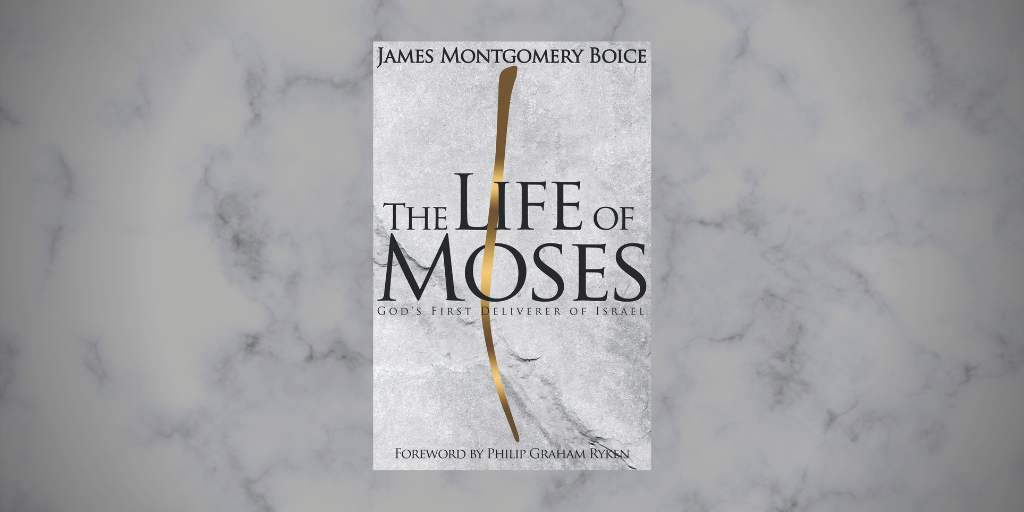Important as Moses’ achievements are, they are overshadowed by his character. It is Moses’ character that brings him down to us and makes this study valuable. If we think only in terms of what Moses achieved, who could ever begin to dream of doing such things? It is almost inconceivable that God would use anybody today in that way. But if we think in terms of those aspects of his personality that God used, this study becomes very practical for us.
Four traits stand out above the others.
His faith. Moses is praised for his faith again and again. He seems to have never taken his eyes off God after God first met him at the burning bush, and so he went from faith to faith and thus from strength to strength. That is the secret of Christian leadership: faith in God. All the great heroes of the Bible—those who are praised by the Scriptures themselves—are praised because of their faith. They were normal people. They had shortcomings and doubts, just as we do. But because of their faith in God, they became strong and were used by God in great ways. The author of Hebrews says that through faith they “conquered kingdoms, enforced justice, obtained promises” (Heb. 11:33). By faith they “stopped the mouths of lions, quenched the power of fire, escaped the edge of the sword” (vv. 33–34); they “were made strong out of weakness, became mighty in war, put foreign armies to flight” (v. 34). If you feel weak in faith, you have something to learn from Moses.
His dedication to prayer. When God used Moses to lead the people out of Egypt and they were trapped, as it seemed—the water of the Red Sea before them and the pursuing armies of the pharaoh behind—Moses instinctively turned to God in prayer. When the people rebelled in the wilderness, Moses turned to God in prayer. The greatest example of intercessory prayer in the entire Bible—greater even, in my judgment, than Abraham’s great plea for Sodom and Gomorrah in Genesis 18—is Moses’ prayer for the people when they disobeyed by making the golden calf (Ex. 32). Moses offered to be sent to hell himself if by his sacrifice he could save the people whom he loved. We learn a lot about prayer from Moses.
His meekness. Moses was a meek man. So many people who become great or get into positions of authority lose humility right away. I’ve not known many of the famous in the world, but I’ve known some. My experience is that generally they’re very much full of themselves; you find yourself thinking that you’d rather go home and be with someone nice instead. That did not happen to Moses. The greater he became, the more meek, the more humble he became. “Now the man Moses was very meek, more than all people who were on the face of the earth” (Num. 12:3). When you’re thinking of leadership qualities, don’t forget humility. God puts it right up there at the top.
His courage. Moses excelled in courage. He showed it on many occasions, but if we had no other example, he certainly showed courage in marching up before the mighty pharaoh. A Bedouin shepherd from the desert, Moses stood in the splendor of Egypt and said, “In the name of God Almighty, let my people go.” It took courage to do that. He showed that courage throughout his life.
THE DEVELOPMENT OF CHARACTER
In the few incidents we know from Moses’ early life, these good qualities do not seem prominent. For example, when Moses decided to quit the court of Pharaoh and identify himself with his people, the first thing we know he did was to kill an Egyptian. He saw oppression taking place, so he killed the oppressor. That’s not exactly humility. It may have been courage of a sort, but that courage did not stand him in great stead, because as soon as the murder was found out and he realized that his life was in danger, he fled the country. Then, when he stood before the burning bush and God told him to go back to Egypt, courage was the last thing he showed. He did not want to go. He thought up all kinds of reasons why he couldn’t go and why God had to choose somebody else.
You and I can look at characters in the Bible and say, “I wish I had those great traits, but I don’t.” But it is encouraging to know that these people did not always have those traits. They learned them along the way. Moses learned courage and meekness and prayer, and he grew great in faith year by year as he lived with God. If he did it, you can do it, too.
Moses lived to be 120 years old. He had forty years in Egypt in the court, and when he was forty years old, he had to run away. He spent forty years in the desert as a shepherd, and God met him at the burning bush and called him to be the deliverer when he was eighty years old. Then he led the people for forty years. It has been said that Moses spent forty years in Egypt learning something, then he spent forty years in the desert learning to be nothing, and then spent the last forty years of his life proving God to be everything. This is a good way of describing what the Christian life is all about. Some of us do not prove God to be everything because we’ve never learned that we are nothing. When we come to that point, we are ready to have God work through us as he did with Moses.
Excerpt taken from The Life of Moses: God’s First Deliverer of Israel by James Montgomery Boice


Comments